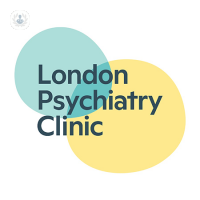Mental disorders
Dr Oscar D’Agnone - Psychiatry
Created on: 11-19-2013
Updated on: 07-28-2023
Edited by: Sophie Kennedy
What are mental disorders?
Mental disorders, also known as mental illnesses, affect the cognitive, emotional and behavioural development of a person. Many people suffer from mental health problems from time to time, however, it is recognised as a mental disorder when symptoms persist, cause unwanted stress and discomfort and prevent you from functioning normally.
There are many types of mental disorders, although the most common are depression, anxiety, phobias, obsessive-compulsive disorder and PTSD. Your family background, life experiences and biological factors all play a significant role and can influence the onset of a disorder.

What are the most common mental disorders?
Anxiety disorders
Anxiety is very common and can actually be useful in stressful situations; however, it is considered a disorder when your symptoms cause too much distress or are seriously affecting your quality of life. Types of anxiety disorders include:
- Panic attacks
- Phobias
- Post-traumatic stress disorder (PTSD)
- Obsessive-compulsive disorder (OCD)
- Generalised anxiety disorder
Mood disorders
A mood disorder generally distorts your emotional state, making it difficult for you to carry out day-to-day activities. One of the most common is bipolar disorder which affects how you act, think and feel. It goes beyond mood swings and disrupts many aspects of your daily life. If you suffer from bipolar disorder, you experience moments of mania (a state of abnormally elevated arousal and energy levels) and then prolonged periods of depression. Of course, we all feel up and down from time to time, but when these feelings last for months, it is considered a mental disorder that can be very serious and debilitating for the patient.
Eating disorders
There are three main types of eating disorders. If you suffer from an eating disorder, you experience severe disturbances in your behaviour, thoughts and emotions related to food and likely to be very preoccupied with body weight. The most common are:
Psychotic disorders
These mental illnesses are very serious and cause you to lose contact with reality and experience hallucinations and delusions. Psychotic disorders include:
- Delusional disorder
- Paranoia
- Schizophrenia
Personality disorders
These disorders affect your behaviour, causing rigid and unhealthy thinking patterns and functioning which subsequently cause difficulties in your relationships. Examples include:
- Borderline personality disorder (BPD)
- Antisocial disorder (TASP)
- Psychopathy or sociopathy
What are the symptoms of mental disorders?
The symptoms of mental disorders are different depending on the person’s problem, the circumstances that cause it and other external factors. Normally, symptoms affect the person’s behaviour, thoughts and emotions. The most common being:
- Feelings of sadness
- A lack of enthusiasm
- Inability to concentrate
- Confused thoughts
- Emotional ups and downs
- Sudden mood swings
- Withdrawal from the activities from which you used to find enjoyment
In addition to these emotional factors, other problems can also be a sign of mental health issues, including:
- Fatigue and low energy
- Sleep disorders
- Delirium, hallucinations or paranoia
- Inability to cope with problems or everyday stress
- Alcohol or drug abuse
- Eating disorders
- Changes in sexual desire
- Excessive anger or violence
- Suicidal thoughts
How are mental disorders diagnosed?
To assess and diagnose mental disorders, a specialist, such as a psychologist or psychiatrist, will study your medical history. You will then undergo a physical exam and sometimes blood tests, to rule out any other medical conditions that might be causing your symptoms.
A psychological evaluation will also be needed, where you will need to answer questions about your feelings, behaviour and thoughts.
What are the causes of mental disorders?
Most mental disorders don’t have one single cause, but instead, there are usually several factors that contribute to the development of a disorder. These may include:
- Your genetics and family history
- History of anxiety and stress or if you have been abused during childhood
- Biological factors, such as chemical imbalances in the brain
- Having suffered a traumatic brain injury
- Exposure of the mother to viruses or chemicals during pregnancy
- Excessive drug or alcohol use
- Suffering from a major illness, such as cancer
- Feeling lonely or isolated
Can mental disorders be prevented?
It is difficult to prevent mental disorders. If you have a history of mental problems, it is important to go to a specialist to establish treatment as soon as possible so that the problem does not manifest and get worse. There are effective strategies to prevent the symptoms of some disorders, such as depression.
How are mental disorders treated?
The treatment of mental disorders depends on the type and severity of the disorder you have. Treatment is almost always personalised, so the specialist treating you must conduct a psychological interview to establish the best type of therapy.
Therapy can, in some cases, be combined with medication, social support or education in some aspects. In certain cases where a person suffers from a severe mental illness or is at risk of harming themselves or others, they may need to go to a psychiatric centre. Once there, the patient will be admitted and receive advice and take part in group discussions and therapy with professionals who are experts in mental pathologies.
Which specialist treats mental disorders?
The specialist responsible for treating mental disorders depends on the type and severity of the disorder but is typically a psychologist or psychiatrist.














